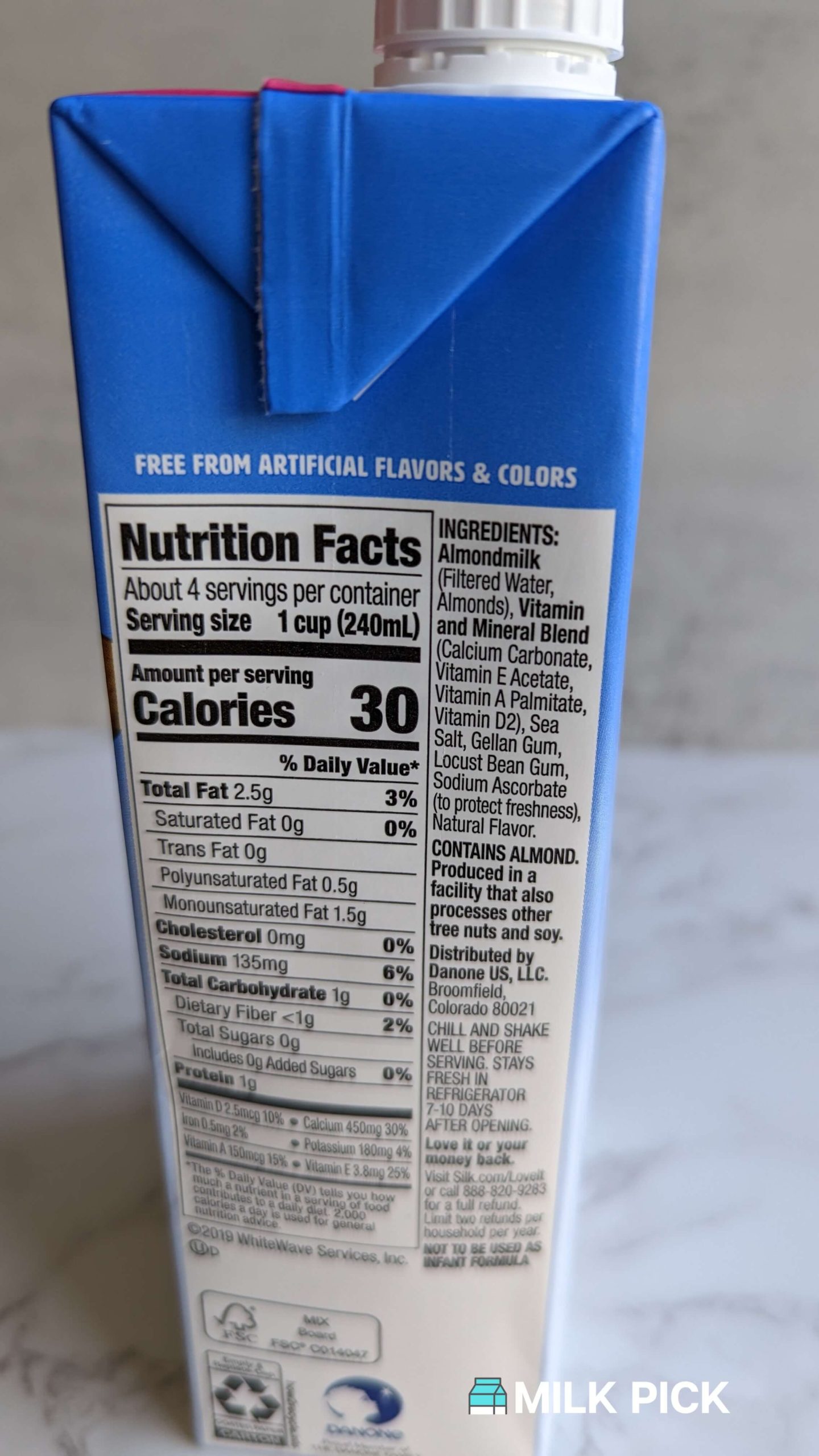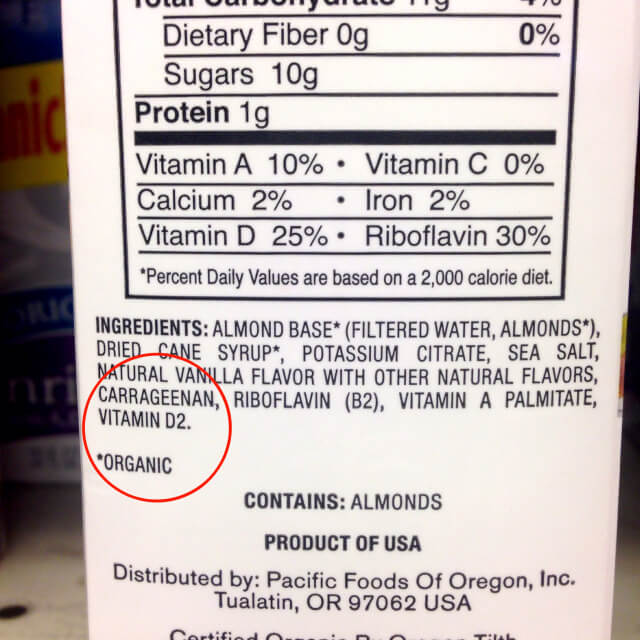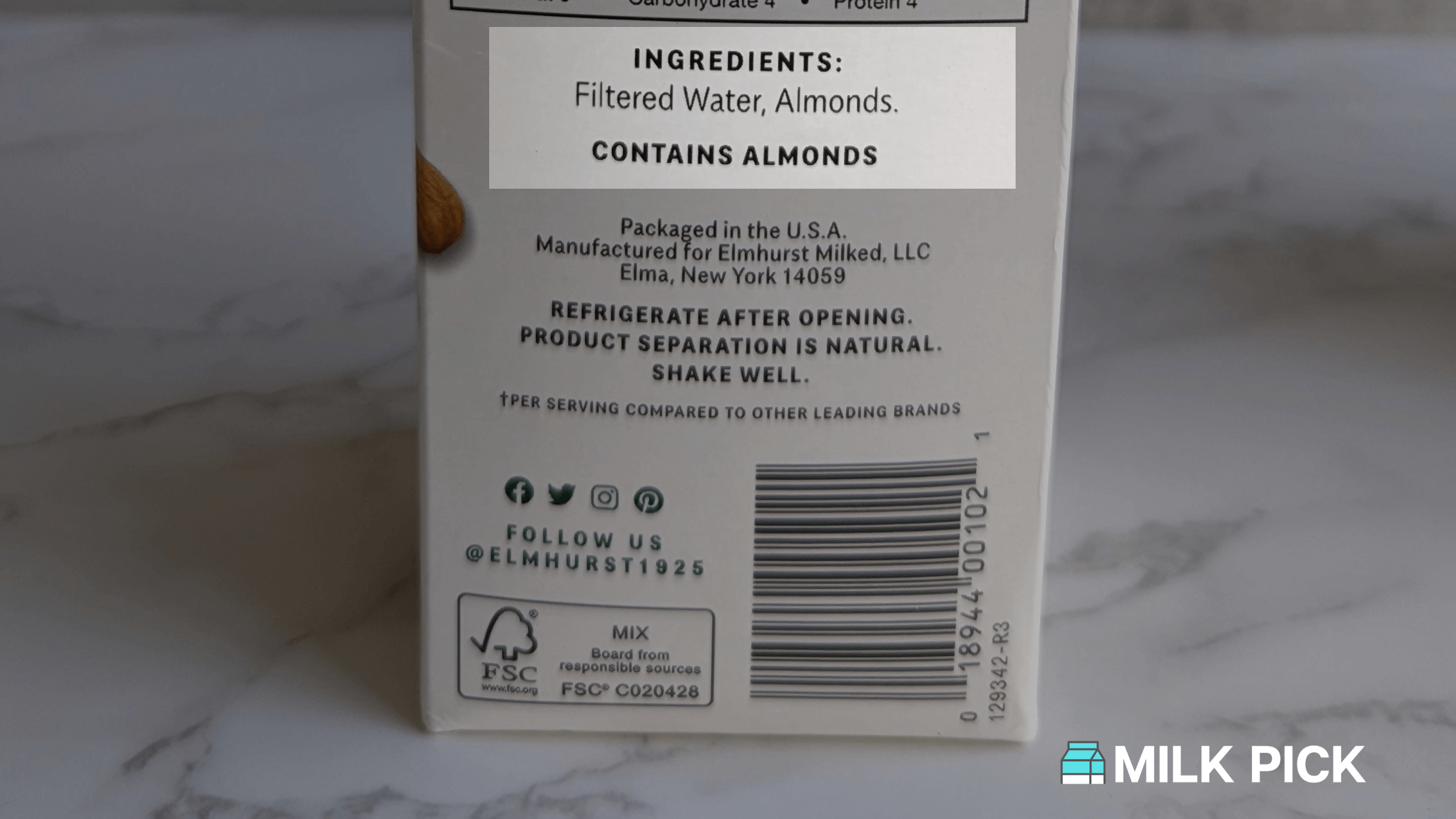Most people don’t think about the mucus their body produces unless they experience problems caused by excess fluid, like coughing or digestive issues.
Most of the time, your body makes just enough mucus to keep your systems running efficiently. However, too much mucus can indicate an underlying health condition like an allergy or infection.
Certain foods, such as almond milk, can cause mucus production in your body. It’s helpful to understand why this happens and what it may indicate about your well-being.
Learn when almond milk might cause extra mucus in your body, how it compares to dairy milk, and what you can do to minimize excess mucus caused by the beverage.
Does Almond Milk Make Your Body Produce More Mucus?
Under certain circumstances, almond milk can make your body produce more mucus. The most common reasons almond milk may cause excess mucus development include:
- Almond sensitivity or allergy
- Reaction to additives in almond milk
Almond Sensitivity or Allergy
If you have an almond sensitivity or are allergic to the tree nut, you may experience an increase in mucus in your body after consuming it.
Almond milk is made of almonds and water blended together and strained.

If you have a nut allergy, specifically to almonds, your body will respond as if it were fighting off a dangerous pathogen by releasing histamine and other chemicals.
While some people experience allergic reactions like swelling or anaphylactic shock, others can have increased mucus production along with a runny nose or nasal congestion.
If you notice yourself cleaning your throat, blowing your nose, or suffering from congestion after drinking almond milk, you may want to choose another alternative product to drink.
You should also visit your doctor to test for an allergy or sensitivity so you can avoid a similar reaction in the future.
Reaction to Almond Milk Additives
In some cases, excess mucus production after drinking almond milk can be caused by a reaction to additives in the product rather than the almonds themselves.
Many almond milk manufacturers add ingredients to their products, like emulsifiers, stabilizers, natural flavors, and sweeteners, to enhance the texture and flavor and increase their shelf life.

These additives may cause an adverse reaction in some people, resulting in extra mucus production.
For example, sugar has been linked to inflammation and sinonasal symptoms in the body, so you may have increased mucus after drinking sweetened almond milk.
Emulsifiers like carrageenan, which are sometimes found in commercial almond milk brands (although this is changing), may also cause excess mucus production.
Carrageenan has been linked to multiple gut problems, including irritation and inflammation. It has also been shown to alter the microbiota of the gut and its mucus barrier thickness.

How Does Almond Milk Compare With Dairy Milk?
Many people believe that dairy milk causes heightened mucus production.
They may switch to almond milk as part of a vegetarian, vegan, or more plant-based lifestyle to reduce inflammation and other issues like excess mucus.
While almond milk is certainly a healthy substitute for dairy milk for many people, it isn’t necessarily better for mucus-specific problems.
Current research shows that the idea that dairy milk causes increased mucus may be a longstanding myth.
There are some studies, like a 2018 blind trial, that found that a diary-free diet significantly reduced self-reported levels of nasopharyngeal secretions.
However, non-self-reported studies, including a 2018 review of available studies and literature, found that dairy milk is not the actual cause of extra mucus.
This widely accepted information says that the thick texture of dairy milk coats the mouth and tongue and makes people feel like their saliva is thicker and more viscous, making it harder to swallow.
Dairy milk is an animal by-product and contains natural sugars that may cause inflammation or mucus production in some people.
While you may have excess mucus after consuming cow’s milk if you are lactose intolerant, this is likely due to an allergic reaction rather than the milk itself causing the mucus.
When compared to almond milk, dairy does not cause additional mucus production.
However, unless it contains additives that alter its texture, almond milk is less thick than dairy milk, which may be more comfortable to drink.
Related: Almond Milk vs. Cow Milk
What Almond Milk Brands Have the Least Effect On Mucus Production?
If you’re concerned with your body’s mucus production, you can choose specific almond milk brands to minimize the issue.
Since additives cause most almond milk-related mucus production, it’s best to choose organic almond milk brands that do not contain extra ingredients.
As long as you don’t have an almond allergy, this should reduce the risk of excess mucus due to emulsifiers or other ingredients like sweeteners.
The following brands are either organic or additive-free and make a good option for those looking to reduce inflammation, irritation, and other issues caused or increased by mucus:

What is the Purpose of Mucus in the Body?
Mucus is a slippery, thick substance produced by membranes in your body.
The majority of mucus-producing membranes are located in your genitourinary (urinary and reproductive organs), gastrointestinal (digestive organs), and respiratory tracts.
Mucus lubricates and protects the surfaces of these organs, keeping them from drying out.
Mucus is also part of the body’s immune system. In areas like your eyes, nose, and mouth, mucus traps foreign particles, including viruses and bacteria, and stops them from entering your body.
The mucus in your digestive system also contains enzymes and immunoglobulins (proteins that protect against bacteria and viruses), which help fight infections and break down harmful elements.
What Causes Your Body To Produce Excess Mucus?
Your body naturally produces enough mucus to do its intended job, but sometimes it can create too much of the substance.
This excess mucus production can happen for several reasons, including:
Allergies
An allergic reaction often causes excess mucus. When you are allergic to a substance like pollen, animal dander, or dust, your body overreacts and treats it like a bacteria or virus.
As histamine is released in your airway, it causes you to sneeze, which also causes membranes in your nose to swell and make more mucus.
Respiratory Infection
Respiratory infections such as the flu, colds, or respiratory syncytial virus (RSV) can lead to increased mucus in the body.
This is due to your immune system trying to flush the invading pathogens out by trapping them in mucus while cilia, the small hairs inside your lungs, push them up and out of your airway.
Irritants in the Environment
Environmental irritants, like smoke, mold, air pollution, or chemicals, can cause your body to produce extra mucus.
Similarly to respiratory infections, this is due to your mucus membranes trying to protect your respiratory system by getting rid of the irritants.
Medications
When you take medications like antihistamines, nasal decongestants, or antidepressants, your body may produce extra mucus.
These types of medicines can affect the way your body regulates secretions and can cause inflammation, which results in mucus production.
Certain Foods
Some foods can cause excess mucus. For example, many people perceive increased mucus production when eating dairy products.
Foods like bread, coffee, meat, sugar, and sodium can also cause the body to produce extra mucus. This can happen for many reasons, such as food allergies, how the foods affect your hormones, or irritation to your mouth, throat, nose, or stomach lining.
Complications From Too Much Mucus Production
Too much mucus in your body can cause some complications, ranging from minor annoyances to serious breathing conditions.
The most common effects of extra mucus in the body include the following:
- Increased symptoms of conditions like Ulcerative Colitis or Inflammatory Bowel Disease (IBD)
- Respiratory complications for conditions like asthma or bronchitis
- Chronic problems with wheezing, breathing, and congestion
- Chronic issues with ear infections or throat or nose problems
- Further difficulties with sleep apnea, resulting in poor sleep quality
While mucus doesn’t cause these issues, it often plays a part in a cycle of worsening symptoms.
For example, your body creates extra mucus when you have a respiratory condition like bronchitis.
This excess mucus then makes it more difficult for you to breathe, which worsens the condition and can lead to chronic issues.
Final Word On Mucus and Almond Milk
Mucus in your body serves as a way to flush out pathogens and keep certain cells hydrated.
When you have too much mucus, it can cause discomfort, make it difficult to breathe, and negatively impact your gut microbiome, depending on where the mucus production occurs.
For the most part, almond milk is an excellent choice to keep your mucus membranes producing at a normal level.
When you include the beverage as part of a healthy diet full of fresh fruits, vegetables, and nuts, you can help reduce inflammation that affects mucus in your body.
The best way to choose an almond milk that agrees with your body and helps you maintain a healthy level of mucus is to try making it at home or buying a brand without additives.
Test out different options to see how you feel after consuming them and go with the choice that leaves you feeling energized and healthy.
